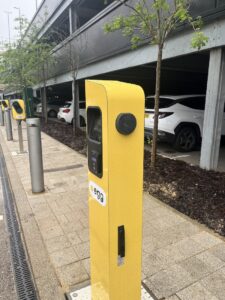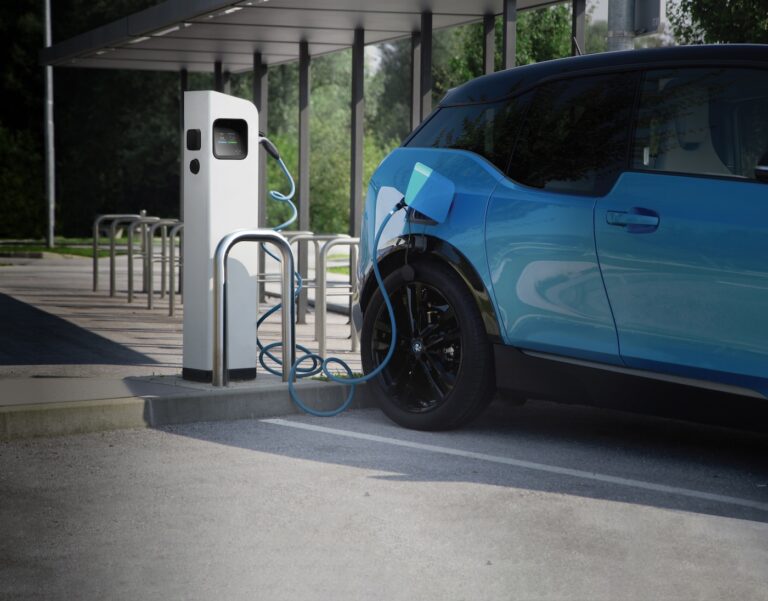Mike Hallam, CEO at Egg energy, says the changes due to com into force April 2025 will be a severe hit to the cost of living and accessibility of EVs. Calls have already come for the Labour government to abolish the tax for battery-powered vehicles, but Mike also believes there is a role for businesses across the EV and cleaner energy ecosystem to help the move to cleaner energy  and transport solutions.
and transport solutions.
Vehicle excise duty (VED) is a tax on every vehicle driven or kept on public roads in the UK. It is collected by the Driver and Vehicle Licensing Agency (DVLA) and is based on the type of vehicle, when it was first registered, or its environmental performance. The tax varies from £30 to £2,605 for the first year – based on the car’s CO2 emissions – plus a fixed annual rate of £180 for subsequent years.
Today, individuals and businesses with electric vehicles (EVs) benefit from free road tax thanks to the VED exception. This applies to any fully electric or hydrogen fuel-cell vehicles. Vehicles over 40 years old and registered with the DVLA as historical status are also free from VED.
Stats from the end of July 2024 show that more than 1,190,000 fully electric cars are currently running on UK roads and many of those are company cars.
VED changes for SMEs
From lower running costs to tax advantages to sustainable brand image, the benefits to having EV company cars are many, but the VED exemption soon won’t be among them.
From 1st April 2025, zero-emission cars will no longer be exempt from VED. Newly registered zero-emission cars will pay a first-year rate of £10, followed by a standard rate of £165 per year. For pre-registered cars, the changes will be backdated and they too will cost the annual £165. Any electric vans used by your business will cost the same as petrol and diesel light goods vehicles, currently at £335 a year.
As the numbers show, the impact of the end of VED exemption may be substantial on your business costs. Watch out for any expensive vehicles in your business fleet in particular. Today, EV cars with a list price over £40,000 are exempt from a luxury car tax, also set to be removed from April next year. Research from Auto Express shows that 70 percent of EVs will be hit with this additional ‘luxury car’ premium tax of £410 per year.
What next? More needed from EV industry
The loss of VED exemption is a severe hit to the cost of living and accessibility of EVs for businesses across the UK. Many automotive industry groups have already called for the government to permanently abolish the tax for EV, however, there is also a role for businesses across the EV and cleaner energy ecosystem to help the move to cleaner energy and transport solutions.
We’ve seen the huge number of EVs on UK roads today: over 1,190,000 fully electric and 620,000 plug-in hybrids. According to the National Grid, we can expect around 10 million by 2030, and as many as 30 million by 2040. Demand for electric vehicle charge points is high and will continue to grow.
More needs to be done to build EV infrastructure. The Department for Transport’s 2024 map of publicly available EV charging devices shows that as of 1st July 2024, there were only 64,632 public EV charging devices available in the UK. More coverage is needed to solve drivers’ “range anxiety” and meet charging demand.
The government needs to work with the private sector to build more charging stations and businesses themselves  can also help – and earn money – by installing EV charge points to offer to the public. As a business, you can utilise outdoor areas or existing car parks to provide a much needed chargepoint service. Our calculations at egg predict that for some businesses, having five chargers open to the public 24 hours a day could generate up to £800,000 in revenue in just one year and smaller spaces could see up to £300,000, after cost of installation. Not only will an EVC facility encourage footfall to the chargers but businesses could also see an increased interest in their core business as drivers look to spend time at the destination whilst their car charges.
can also help – and earn money – by installing EV charge points to offer to the public. As a business, you can utilise outdoor areas or existing car parks to provide a much needed chargepoint service. Our calculations at egg predict that for some businesses, having five chargers open to the public 24 hours a day could generate up to £800,000 in revenue in just one year and smaller spaces could see up to £300,000, after cost of installation. Not only will an EVC facility encourage footfall to the chargers but businesses could also see an increased interest in their core business as drivers look to spend time at the destination whilst their car charges.
From a finance perspective, cleaner energy and EV companies need to introduce solutions that are competitive, with agile rates and terms, and with no counterparty complexity or risk. We are constantly looking to enable people to move to EVs by offering flexible financing options that meet the varied needs of businesses.
Today, long-term practical support is also severely lacking. Users are dropped straight after installation and this needs to change. Whether for EVs or chargepoints or solar panels, suppliers should act as a long-term partner in energy transitions, for years after the core transaction. As energy needs change over the years, the industry must continue to advise and place itself at the centre of an educated and supported community.
Regardless of whether the VED exemption remains or is wiped from April next year, as business owners, you need stronger support in your cleaner energy transition. Hallam is hoping we see the EV ecosystem step up and make the necessary changes, to turbocharge momentum in the market and support the broader transition to cleaner, more sustainable living.

